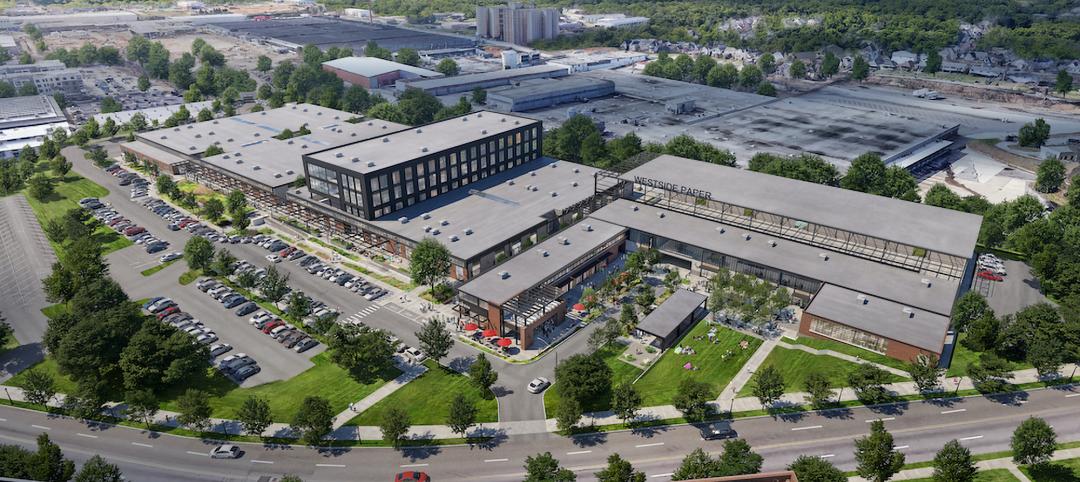Stephen Ayers, FAIA, Architect of the Capitol, has been selected as the 2018 recipient of the Thomas Jefferson Award for Public Architecture. The Thomas Jefferson Award for Public Architecture recognizes architects in the public and private sectors, public officials, or other individuals who design distinguished public facilities and/or who advocate for design excellence. Ayers will be honored at the AIA Conference on Architecture 2018 in New York City.
As the 11th Architect of the Capitol, a position he was appointed to by President Barack Obama in 2010, Ayers cares for the nation’s architectural treasures and uses his prominent voice to advance the profession. His leadership has seen him testify before Congress on more than 50 occasions, where his keen insight on matters of historic preservation, long-range master planning, and sustainability has elevated the discourse on good design to the national level.
A recognized leader in sustainability, Ayers guides more than 2,300 employees and a $600 million budget in the stewardship of some of America’s most important buildings. He oversaw completion of the U.S. Capitol Visitor Center, a project that was well over budget and behind schedule when he was appointed. When he committed to a completion date and final budget — both of which proved to be accurate — Ayers demonstrated to Congress that the country’s architects can lead and deliver. More recently, his restoration of the Capitol dome and rotunda repaired more than 1,000 cracks and deficiencies in the structure.
Ayers has received several design awards from the AIA for his restorations of the Thomas Jefferson Building and U.S. Botanic Garden Conservatory, among others, and initiated and oversaw a comprehensive master plan for the U.S. Capitol complex. The plan was developed concurrently with one for the National Mall, and encompassed the House of Representatives, Senate, Library of Congress, and Supreme Court. His widely recognized sustainability initiative for the Capitol Complex has resulted in a 30 percent reduction in energy consumption across the campus, with a further 20 percent reduction on the horizon. As the voice of the profession at the highest levels of government, Ayers’ commitment to the past and concern for the future enhance projects nationwide.
Learn more about Ayers here: https://www.aia.org/showcases/173916-stephen-ayers-faia
The jury for the 2018 Thomas Jefferson Award includes: Rik Master, FAIA (Chair), USG Corporation; Patrick Burke, FAIA, Columbia University; Lindsey Graff, Assoc. AIA, Ayers Saint Gross Architects; Libby Haslam, AIA, GSBS Architects; and R. Steven Lewis, FAIA, TRC Energy Services.
Related Stories
Industry Research | Jan 23, 2024
Leading economists forecast 4% growth in construction spending for nonresidential buildings in 2024
Spending on nonresidential buildings will see a modest 4% increase in 2024, after increasing by more than 20% last year according to The American Institute of Architects’ latest Consensus Construction Forecast. The pace will slow to just over 1% growth in 2025, a marked difference from the strong performance in 2023.
Giants 400 | Jan 23, 2024
Top 110 Medical Office Building Architecture Firms for 2023
SmithGroup, CannonDesign, E4H Environments for Health Architecture, and Perkins Eastman top BD+C's ranking of the nation's largest medical office building architecture and architecture engineering (AE) firms for 2023, as reported in the 2023 Giants 400 Report.
Giants 400 | Jan 22, 2024
Top 100 Outpatient Facility Architecture Firms for 2023
HDR, CannonDesign, Stantec, Perkins&Will, and ZGF top BD+C's ranking of the nation's largest outpatient facility architecture and architecture engineering (AE) firms for 2023, as reported in the 2023 Giants 400 Report. Note: This ranking includes design revenue for work related to outpatient medical buildings, including cancer centers, heart centers, urgent care facilities, and other medical centers.
Construction Costs | Jan 22, 2024
Construction material prices continue to normalize despite ongoing challenges
Gordian’s most recent Quarterly Construction Cost Insights Report for Q4 2023 describes an industry still attempting to recover from the impact of COVID. This was complicated by inflation, weather, and geopolitical factors that resulted in widespread pricing adjustments throughout the construction materials industries.
Transit Facilities | Jan 22, 2024
Top 40 Transit Facility Architecture Firms for 2023
Perkins&Will, HDR, Gensler, Skidmore, Owings & Merrill, and HNTB top BD+C's ranking of the nation's largest transit facility architecture and architecture engineering (AE) firms for 2023, as reported in the 2023 Giants 400 Report. Note: This ranking includes design revenue for work related to bus terminals, rail terminals, and transit stations.
Hotel Facilities | Jan 22, 2024
U.S. hotel construction is booming, with a record-high 5,964 projects in the pipeline
The hotel construction pipeline hit record project counts at Q4, with the addition of 260 projects and 21,287 rooms over last quarter, according to Lodging Econometrics.
Modular Building | Jan 19, 2024
Virginia is first state to adopt ICC/MBI offsite construction standards
Virginia recently became the first state to adopt International Code Council/Modular Building Institute off-site construction standards.
Office Buildings | Jan 19, 2024
How to strengthen office design as employees return to work
Adam James, AIA, Senior Architect, Design Collaborative, shares office design tips for the increasingly dynamic workplace.
Modular Building | Jan 19, 2024
Building with shipping containers not as eco-friendly as it seems
With millions of shipping containers lying empty at ports around the world, it may seem like repurposing them to construct buildings would be a clear environmental winner. The reality of building with shipping containers is complicated, though, and in many cases isn’t a net-positive for the environment, critics charge, according to a report by NPR's Chloe Veltman.
Adaptive Reuse | Jan 18, 2024
Coca-Cola packaging warehouse transformed into mixed-use complex
The 250,000-sf structure is located along a now defunct railroad line that forms the footprint for the city’s multi-phase Beltline pedestrian/bike path that will eventually loop around the city.

















